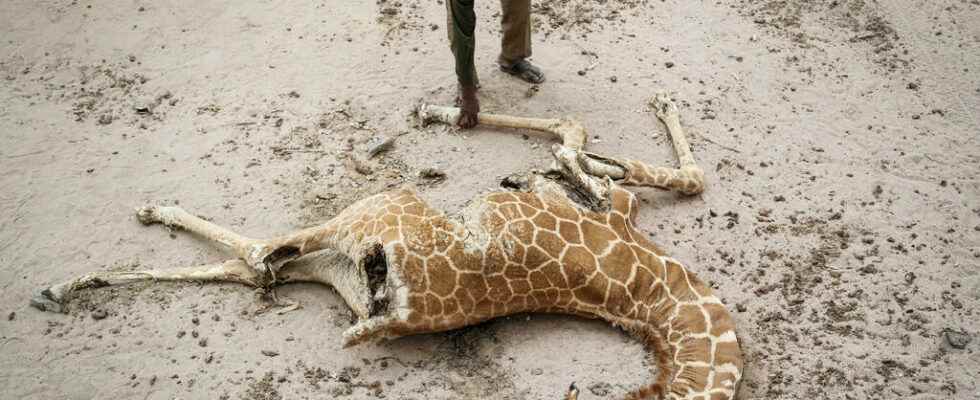Biodiversity, food, health, economy… Beyond 1.5 degrees of global warming, the damage in Africa will be very heavy, estimates the IPCC, the Intergovernmental Panel on Climate Change, in the second chapter of his report. They call for the financial implementation of a number of adaptation measures.
Africa is at risk of widespread biodiversity loss. Above a degree and a half of global warming, half of the species will lose 30% of their numbers or their habitat. Beyond two degrees, it is the guaranteed extinction of 7 to 18% of species and 90% of corals in Africa.
Up to 90 million displaced in Africa at 2°C warmer
Human food is also threatened by the drought, with lower yields, for example, of maize. Reduced fish catches in a warmer ocean will lead to iron and vitamin deficiencies for millions of people on the continent.
More insect-borne diseases like malaria, beyond 1 degree 5 of global warming nearly half a billion Africans under 5 and over 60 will be exposed to waves of heat above 42 degrees for 15 days in a row. Not to mention the rise in water levels in coastal cities.
► To read also: The IPCC publishes its new report focused on adaptation to climate change
All these disturbances will lead to additional internal migrations on the continent, up to 90 million displaced people, two thirds of them in West Africa if an additional 2.5 degrees of temperature is reached.
Necessary adaptations
It will be necessary to build barriers against coastal erosion, to set up more precise and more targeted weather warning services to guide populations and activities, to preserve forests. Farmers will not only have to generalize agroecology, but also diversify their activities in order to survive. All these adaptations, African states must plan and finance them.
Funding, underline the IPCC experts, is the main obstacle to the implementation of projects. However, the longer we wait, the more costly adaptation will be for Africa. African economies will lose up to 20% growth by the end of the century if the global temperature increases by two degrees.
► Read also: Kenya, leader in green energy in Africa, lacks means
